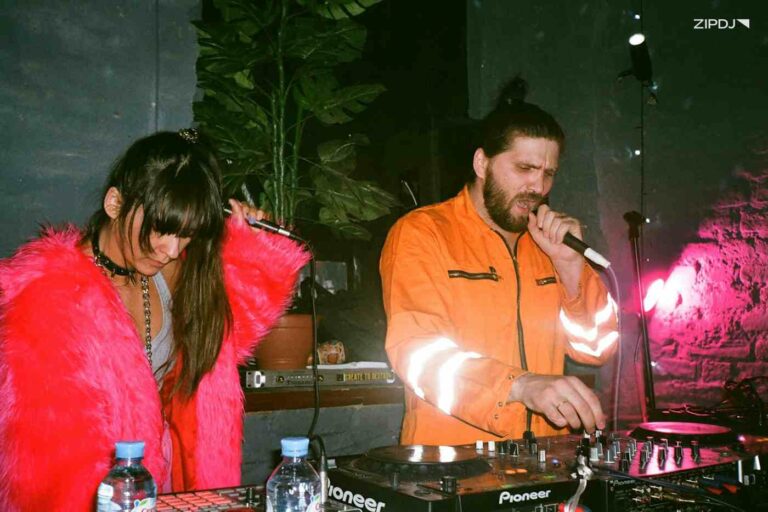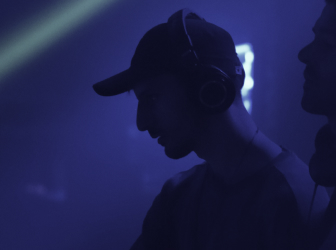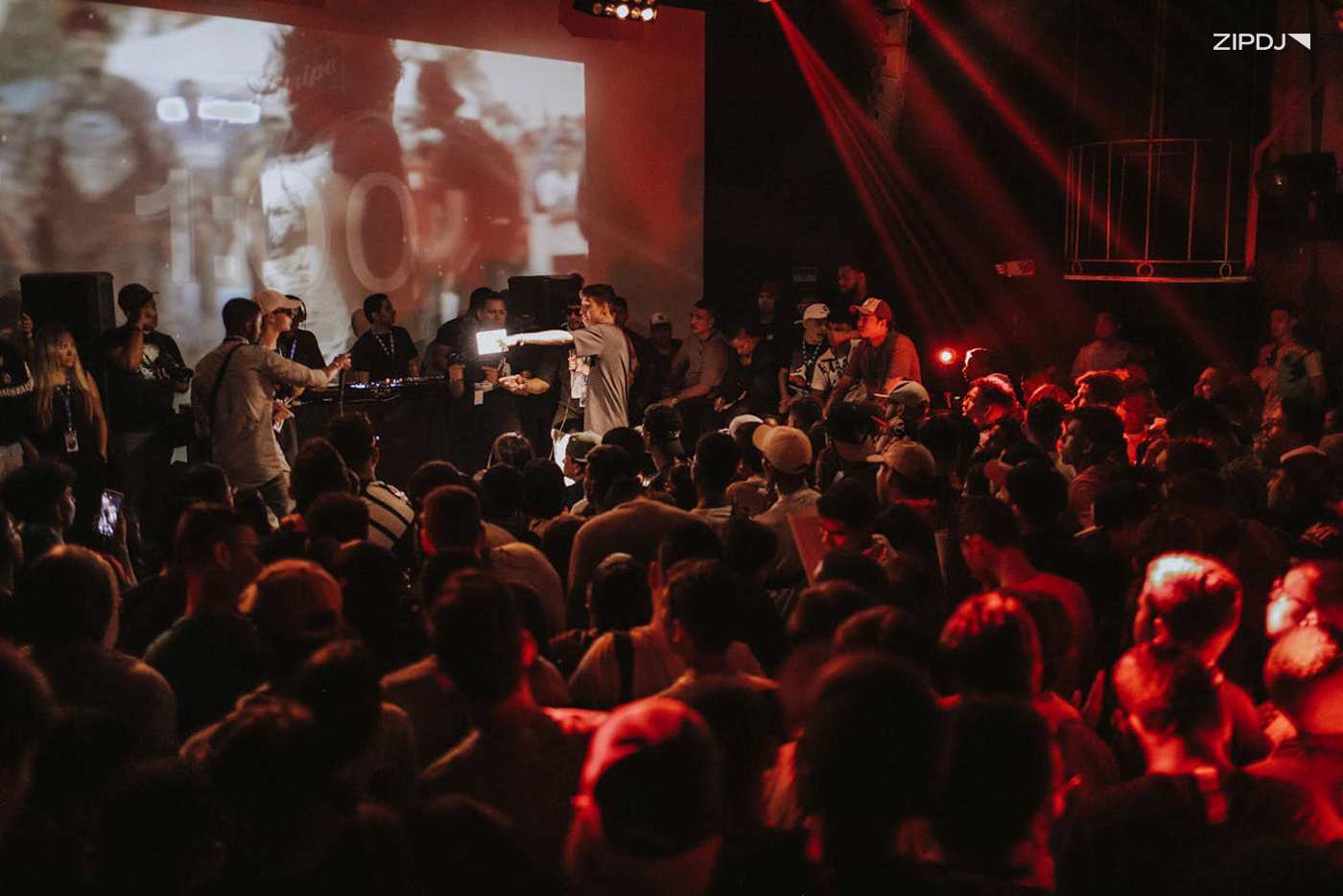What Is House Music? A Detailed Guide

The history of dance music culture is deeply intertwined with the history of house music, a foundational genre that has impacted everything since.
From the early house music of the 1980s to its impact on contemporary electronic music, house music pioneers have helped define modern culture.
This article covers everything you need to know about house music, from the iconic early producers to the genre’s evolution throughout the decades.

What Is House Music?
House music is the original dance music genre, drawing inspiration from the disco records of the 1970s before evolving into an entirely original style.
As the foundational genre that would inspire all types of dance music that would follow, its pivotal role in the music industry is indisputable.
After several decades of evolution and the emergence of multiple subgenres, house music remains the most popular club genre in the UK and beyond.
House music has also influenced additional genres, such as techno music, with major DJs frequently blending these styles together in their sets.
More recently, the impact of house music on EDM has seen the rise of superstar DJs who dominate the industry, both in the charts and at major international music festivals.
Explore ZIPDJ’s subscription pricing.
How Does House Music Sound?
House music has a distinct sound that most DJs who play house music use to blend tracks together in a single unified DJ set effortlessly.
This sound begins with characteristic repetitive rhythm patterns based around 4/4 beats, incorporating drum machines, basslines, and samples.
From this core foundation, many sub-genres of house music have emerged, adhering to the basics while experimenting with effects, vocals, and other elements.
It’s a genre that understands the significance of emotional resonance and the psychology of music, with the ability to capture a crowd’s full attention.
Let’s examine how house music producers structure sound in their tracks and how DJs use these structural elements when mixing sets.
House Music Structure
If you’re learning how to DJ house music, the first thing you need to be aware of is its structure so you can effectively blend and mix between tracks.
We’ve touched on the core 4/4 beat structure that underpins house music and provides the foundation for DJ mixing techniques such as beatmatching.
Here are some other structural elements of house music that you need to be aware of:
- Intro: The intro for house music typically comprises drums and a bassline, which DJs use to smoothly introduce the incoming track into the outgoing track during a mix.
- Breakdown and melody: Once the intro is finished, house music producers usually segue into the melody through a short breakdown transition before introducing the verses and chorus structure typical in house and most other genres.
- Buildup: Most house music tracks have a build-up section that creates a sense of anticipation in the crowd. Rising drums and melodies are characteristic of this section.
- Drop: The drop is the moment in a piece of house music where the crowd goes wild, bringing all of the structural elements to the foreground
- Outro: Like the intro, the outro usually reduces everything but the drums and basslines to allow for easier transitions during a DJ set.
In addition to drum machines, house music is also known for its use of samples, whether vocal snippets or sampled instrumentation.
DJs can extract these elements as stems and use them independently of the tracks to add more texture and interest to their DJ sets.
A Brief History Of House Music
House music’s origins extend way back to the 1970s and the rise of disco music, evolving over the years as technology revolutionized how music production was performed.
Existing at the forefront of music trends throughout the decades, house music started the global trend of electronic music styles that dominate clubs and festivals.
Here’s an overview of house music’s origins, how it has transformed the industry, and how it has played a major role in the history of DJing.
Origins With Chicago House Music
House music originated in the early 1980s, with the emerging sound coming from the Chicago underground club music scene.
Building on the pioneering DJ style that resulted from the blending of disco songs using DJ mixers, it quickly forged a unique path.
The Chicago house music scene originated in the Warehouse Club, where the genre gained its popular name, which is still used to this day.
Other notable venues in the early years of house music include the Paradise Garage nightclub in New York, which was instrumental in the genre’s rise to fame.
Many of the best old-school DJs, including Frankie Knuckles and Larry Heard, cut their teeth DJing at these iconic dance music venues.
Influences Of Music Technology
The emergence of house music was deeply intertwined with the technological advances of the era, and iconic drum machines such as the Roland TR-808 were pivotal to defining its sound.
Likewise, the history of record players also played a major role in how DJs performed house music styles and impacted the culture.
As the genre expanded over time, affordable synthesizers, sequencers, and samplers opened up new creative opportunities for house music production methods.
It was a fruitful era during which many innovations impacted dance music culture more broadly as new genres continued to emerge.
The New York and Chicago house music scenes would also play a significant role in developing another core genre of the scene, in which house artists would play a major role.
Influence On Detroit Techno Music
A discussion of the history of house music wouldn’t be complete without referencing the techno music scene that emerged around the same time.
Many of the same production methods and equipment that characterized house music were deeply influential on techno, with artists often experimenting with both genres.
Detroit techno, led by producers and DJs including Derrick May and Carl Craig, took house music and delivered a more uncompromising, rawer sound for music fans.
May and other DJs were impressed by the production and DJing of house music luminaries such as Frankie Knuckles in the Chicago house scene.
Indeed, many of the best techno DJs frequently incorporate elements of house in their productions and DJ sets, expanding on the blueprint house music established.
Today, electronic music owes a considerable debt to these pioneering DJs and their enduring influence on music production and DJing worldwide.

The Most Popular House Music Subgenres
Understanding the many house music subgenres is vital to mastering the art of DJing and delivering fresh and invigorating mixes for an audience.
House music continues to influence producers and DJs of all genres, with various subgenres evolving that continue to push the boundaries.
Here are some of the most popular house music subgenres you can explore and incorporate in your DJ sets:
Acid House
The early timeline of house music begins with the arrival of acid house, which came to prominence off the back of the Chicago house scene.
Many consider the first acid house record to be “Acid Tracks” by Phuture, notable for its impressive use of the Roland TB-303 synthesizer in its production.
Following its early popularity in the United States, acid house was later picked up by DJs and producers in the United Kingdom, who continued to expand on its style.
It became synonymous with the broader electronic music scene, associated with the rave culture of the 1980s and 1990s and the later club DJ scene.
Tech House
As the name of this genre implies, tech house is essentially the marriage of house and techno music, incorporating elements of both styles.
Popular among underground DJs, tech house typically emphasizes percussion and quirky effects while avoiding soulful or funky vocals.
This absence of melody, shared by traditional techno tracks, is paired with the tempo and groove of house music’s percussive elements.
A similar genre that pairs well with tech house is tribal house, which also emphasizes beats and basslines in its general production approach.
Deep House
Deep house is one of the most popular subgenres today, with a stylistic approach that closely resembles the laid-back and soulful tone of the original genre.
Widely considered one of the best music genres for DJing, it’s an adaptable subgenre that is equally at home in bars and nightclubs.
Deep house music is often featured in sets by mainstream DJs who enjoy its vocal-heavy sound and easy-to-mix structure.
Progressive House
A common subgenre performed by some of the highest-paid DJs is progressive house, which draws on elements of trance music for a clubbier vibe.
DJs such as Sasha and John Digweed helped popularize progressive house throughout the 1990s and mainstream the subgenre.
The style has also greatly impacted the production techniques used in mainstream EDM releases from producers such as Hardwell and Afrojack.
Hard House
For a more hardcore approach to the house scene there’s hard house, which emerged in the United Kingdom and is known for its fast-paced tempo.
Many of the best gay DJs who emerged during this era focused on hard house, which helped to foster a dedicated fanbase that enjoyed the more aggressive approach.
While hard house isn’t as popular as it used to be, its role in the music culture and the rave scene is hard to underestimate.
Electro House
Blending elements of house, techno, and electro, electro house is another hugely popular subgenre with thousands of DJs who enjoy the style.
Commonly used in sets by the best underground DJs, electro house uses heavy basslines and pounding drums for a dynamic and powerful effect.
With its impressively arranged synths and samples, electro house remains a firm favorite among club DJs who want to add variety to their sets.
Learn more about ZIPDJ’s services.
Best House Music DJs & Artists
If you’re hoping to become a club DJ, you can’t go wrong researching the leading house DJs and how they’ve influenced the genre.
Here are some examples of DJs who have dominated the genre:
- Daft Punk: The French duo Daft Punk arguably did more than any other DJ producers when it came to popularizing house music and pushing it into the mainstream during the 1990s.
- Derrick Carter: Known for his jacking house style and multi-deck mixing, Derrick Carter’s DJ sets became the stuff of legend, influencing countless artists who followed in his wake.
- Eddie Richards: The UK tech house scene was deeply influenced by Eddie Richards, his resident DJ slot at venues such as Fabric in London, and his productions released through Wiggle Records.
- Carl Cox: Straddling the divide between house and techno, Carl Cox rapidly ascended the dance music industry to become one of the biggest names in the scene.
- Todd Terry: One of the founding fathers of the genre and known for his early acid tracks, Todd Terry’s place in the pantheon of music history is well and truly deserved.
Many more famous DJs have been influenced by house music, reflecting its timeless role in shaping the course of electronic dance music culture.
Check out these glowing testimonials for ZIPDJ.
The Future Of House Music
With the future of music continuing to evolve at a rapid pace, the house scene is set to explore new and exciting territories over the coming years.
The role of artificial intelligence in DJing and techniques such as stem separation are reshaping how DJs approach performing their sets.
In many ways, house music remains the sound of the future, with mainstream EDM producers continuing to incorporate elements in their tracks.
This will inevitably lead to more subgenres offshooting from house that blend new styles and production techniques in interesting new ways.
With its popularity showing no signs of waning, the genre’s lifespan looks set to continue for many years to come.
Sign up for ZIPDJ today.
Summary
House music is one of the most enduring genres of all time, influencing international pop music superstars and DJs in underground clubs alike.
Whether you’re new to DJing or branching out from other genres such as hip-hop, house music’s diverse and eclectic variety has something to offer everyone.
With the emergence of new technology and drawing on influences from other styles, house music’s future in the industry is hugely promising.
Not a member ?
Join Today for Unlimited Music Downloads. Visit zipdj.com for more information.



